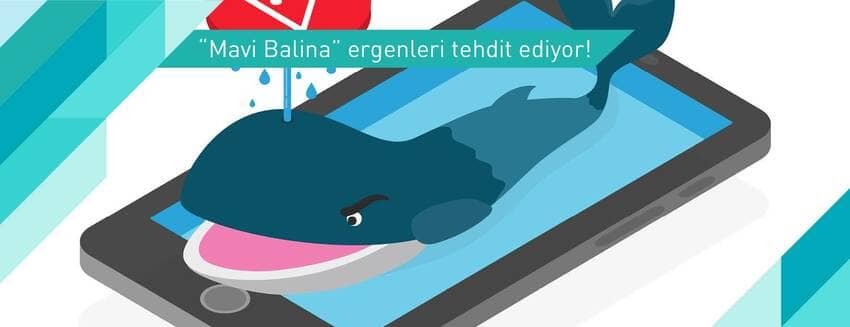
The "Blue Whale" game, which has recently come to the agenda with the claim that it has caused the deaths of many children and young people around the world, worries parents.
Stating that the person who manages the application is emotionally abusive, experts emphasize that adolescents are the most risky group in this process. The way to protect children and young people from similar dangers is through sharing problems and correct communication.
Üsküdar University NPISTANBUL Hospital Psychiatry Specialist Asst. Assoc. Prof. Dr. Onur Noyan said that the "Blue Whale" game, which has caused the death of many children and young people around the world in recent days, threatens adolescents the most.
Emotional abuse is practiced
Emphasizing that the person who manages the "Blue Whale" application applies emotional harassment, Assist.Assoc.Prof. Onur Noyan said, "Although Blue Whale is called a game in print and visual media, it is not a game. The person who manages the application puts the individuals included in the application under psychological pressure and forces them to behave inappropriately with blackmail and threats, in psychological terms, emotional harassment in the virtual environment. When the behaviors desired by the person who manages the application do not occur, the person who manages the application makes insulting, belittling, discourses that will make the other person feel bad, and when they perform the desired behaviors, they provide praising and glorifying feedback and ensure that they move away from their social environment."
Those with self-confidence problems are at risk
Stating that adolescents are the most risky group in this process, Assist.Assoc.Prof. Onur Noyan said:
"The most important feature of adolescence is that adolescents think that adults or their parents do not understand and love them. In this period, excitement and innovations in the outside world are always attractive. They try to cope with negative emotions by spending time in the virtual environment rather than sharing their feelings such as boredom, anxiety and anger with their parents. Adolescents trying to prove themselves are more prone to situations with high excitement, risk and danger. Especially individuals with self-confidence problems, problems in friendships, introverts and timid individuals are also at risk."
Sharing with family is important
Assist.Assoc.Prof. Dr. Onur Noyan stated that families have important duties to take precautions in Blue Whale and similar situations and said, "An individual who is exposed to such a situation should be encouraged to share this situation with his/her closest ones. If he/she does not share it with his/her family and his/her family is aware of this situation, forensic and psychological support should be sought to eliminate the problem here. As soon as the individual shares this situation, they should try to understand the situation without blaming or judging, then think together about how to get rid of this problem by showing empathy, and if the degree of impact on the individual is high, psychosocial support should be obtained without wasting time. In cases where the problem is getting bigger and bigger, a legal process should be initiated and research should be carried out."
Assist.Assoc.Prof. Dr. Onur Noyan said, "First of all, healthy communication should be established by families" and listed his suggestions as follows:
"Adolescents should be made to feel respected in the family, and adolescents should be allowed to share their feelings by allowing them to express their emotions. Adolescents should be modeled in terms of internet and phone use, they should not be used to calm children down, and they should not be allowed to play violent movies or games. Internet sites should be monitored and the computer should be in an environment where all family members can see it."
